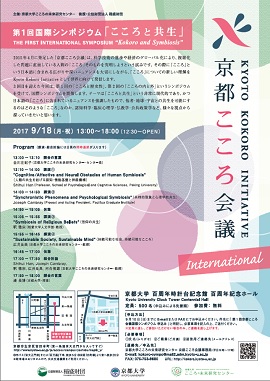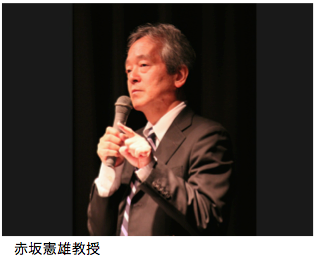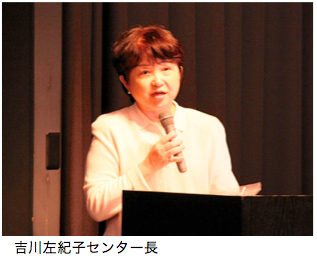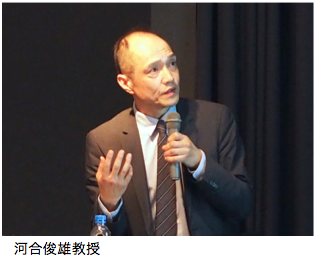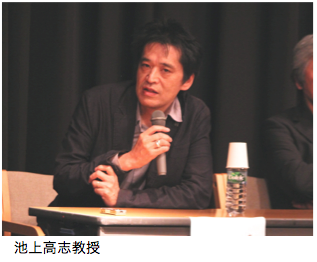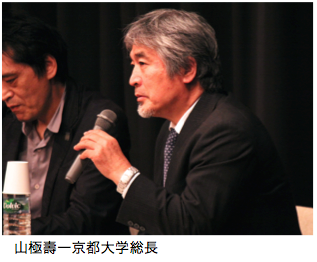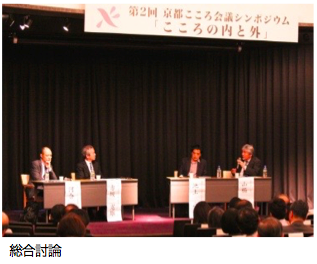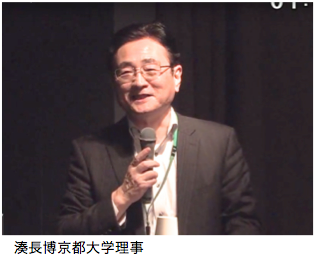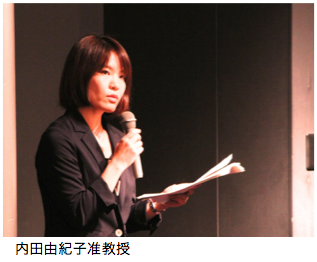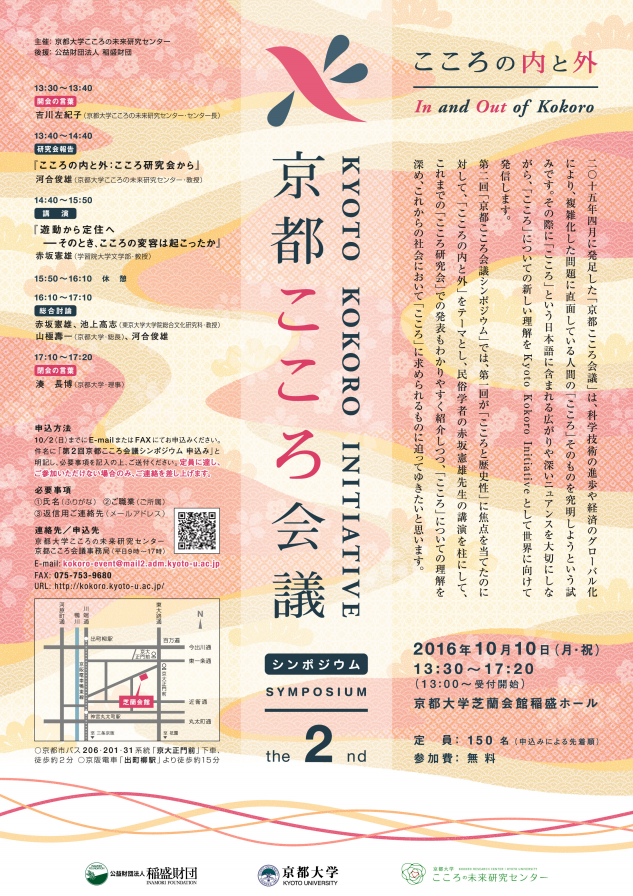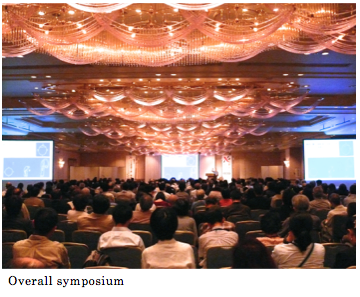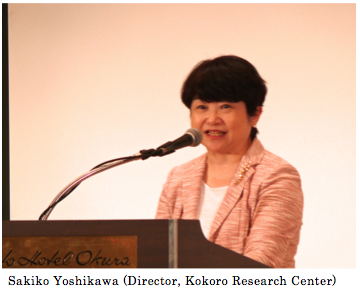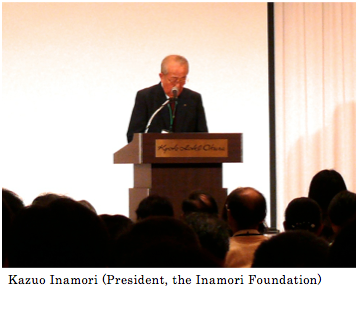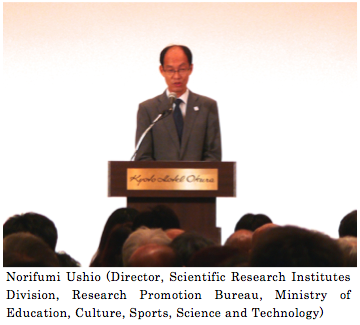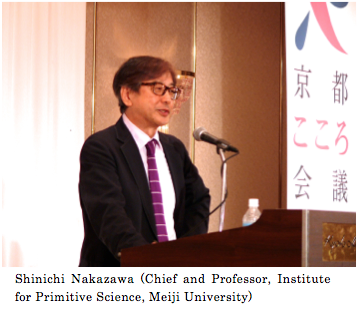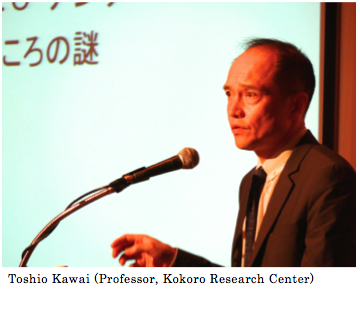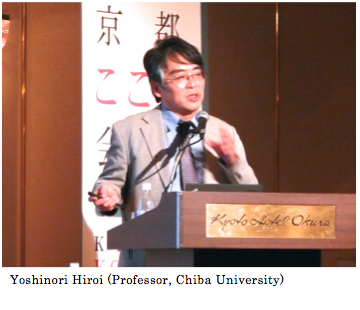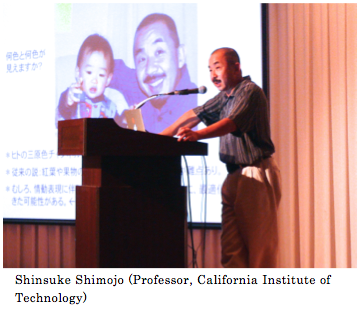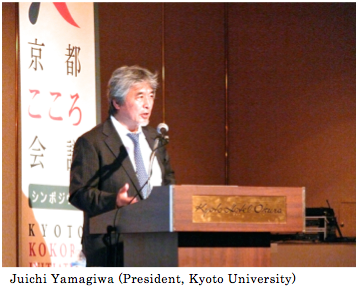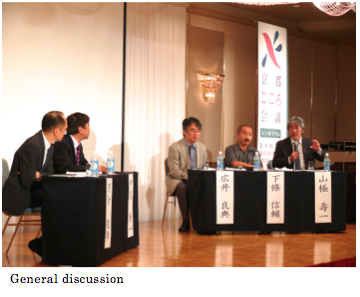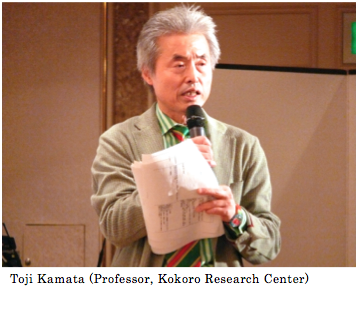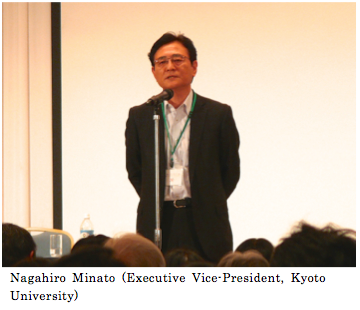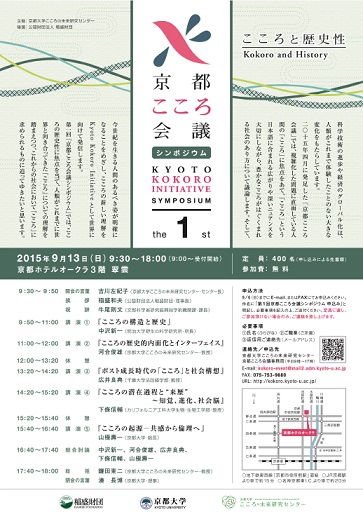Report on the Second Kyoto Kokoro Initiative International Symposium “Kokoro and Limit Situations”
The Second Kyoto Kokoro Initiative International Symposium was held at the Kyoto University Clock Tower Centennial Hall on October 17th, 2021. The Kyoto Kokoro Initiative, which is sponsored by the Inamori Foundation, had previously held six symposia since its launch in 2015: “Kokoro and History” (the first), “In and Out of Kokoro” (the second), “Kokoro and Symbiosis” (the first international symposium), “Kokoro and Ways of Life: What is the Self?” (the third), “Kokoro and the Artificial Mind” (the fourth) and “Kokoro and the Corona Crisis” (the fifth). The theme of the second Kyoto Kokoro Initiative International Symposium was “Kokoro and Limit Situations.” In light of the current global situation of the COVID-19 pandemic, various aspects of the human mind that become apparent when faced with limit situations were discussed and considered from the different perspectives of neuroscience, geography, and psychology.
After an opening address from Prof. Toshio Kawai (Director, KRC, Kyoto University), three lectures were given.
First, Prof. Yadin Dudai (Professor, Weizmann Institute of Science / Global Professor of Natural Science, New York University) gave a lecture entitled “The Traveling Homeland: How Disaster-Induced Collective Insight Had Rescued Jewish Cultural Memory from Death 2000 Years Ago” (joined online).
According to Prof. Dudai, a memory shared by a group, that is, cultural memory, passed down from generation to generation through personal memories, writings, and habituation to form a communal identity. In this lecture, the Talmud, the Jewish holy book, was taken up as a unique example. Prof. Dudai explained the process in which the memory of the communal crisis related to the loss of their homeland has escaped oblivion by making their holy book a “portable homeland” in place of the homeland they lost. At the end of the lecture, Prof. Dudai applied this mechanism of cultural memory to the current situation of the COVID-19 pandemic, and suggested that the formation of a new cultural memory, which transcends the boundaries of traditional communities, may develop in the future.
Prof. Noriko Ishiyama (Professor, School of Political Science and Economics, Meiji University) followed with the second lecture, “Stories of Intergenerational Trauma and Hope: Nuclear Development and Indigenous Peoples in the United States.”
The lecture began with an explanation of the structure of “settler colonialism” inherent in the United States. Prof. Ishiyama pointed out the reality that the existence of indigenous people is being forgotten and made invisible, while diversity is being celebrated, especially in terms of immigrants. Then, she reported her field research at the Hanford Site and Skull Valley and introduced cases of indigenous people living in a nuclear development area called the “sacrifice zone.” In the end, Prof. Ishiyama provided clues to thinking about the kokoro of indigenous people; replacing the traditional concepts of “spirituality” and “identity ” with such important views as “relationalities” and “co-becoming” (transforming together), which focus on the connections between people or between people and land.
The third lecture, “Not Everything Is Post-Traumatic Stress Disorder (PTSD): On the Cultural Limits of a Diagnostic Concept and New Approaches,” was presented by Prof. Andreas Maercker (Professor and Chair, Department of Psychology, University of Zurich) (joined online).
Prof. Maercker presented the following view on the diagnosis of post-traumatic stress disorder (PTSD); while an “etic” (external) approach based on a third party’s point of view has been the mainstream, an “emic” (internal) approach based on the patient’s own point of view and respecting their cultural background is important. According to him, just as the English word “trauma” itself is derived from a Latin metaphor, the traditional Eurocentric understanding would be overcome by incorporating different metaphors of “trauma” inherent in each culture. From these discussions, Prof. Maercker emphasized the importance of cultural aspects in understanding and speaking about the kokoro of humans, touching on the definition of the word “kokoro” in Japanese.
After the lectures, the three speakers joined Prof. Kawai in a discussion. As “trauma,” “homeland/terrene,” “culture” emerged as keywords linking the three lectures, they elaborated on these keywords in the context of the trauma of homeland loss in both Jewish and Indigenous American cases. At the end of the discussion, the appropriateness of terms and concepts to speak on the kokoro of a particular community or ethnic group was discussed. They concluded that there is a need today to find a concept with a pluralistic perspective by taking into account the diversity in each culture.
At the end of the symposium, Prof. Norihiro Tokitoh (Executive Vice-President for Research, Evaluation, and Industry-Government Academia Collaboration, Kyoto University) gave closing remarks. Prof. Seiji Kumagai (Associate Professor, KRC) served as the moderator of the day.
Videos of the lectures and discussion will be available soon on the KRC website.
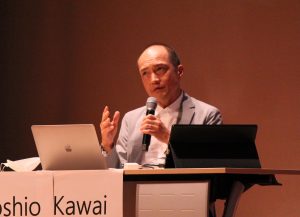
Prof. Toshio Kawai (Director, KRC, Kyoto University)
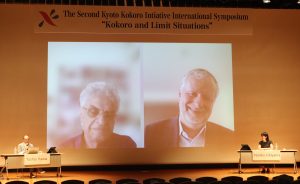
Prof. Yadin Dudai (Weizmann Institute of Science / New York University) and Prof. Andreas Maercker (University of Zurich)
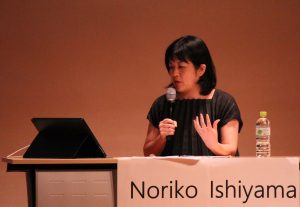
Prof. Noriko Ishiyama (Professor, School of Political Science and Economics, Meiji University)
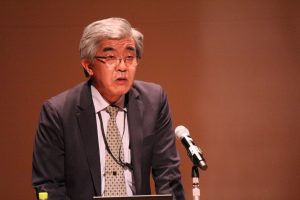
Norihiro Tokitoh (Executive Vice-President, Kyoto University)
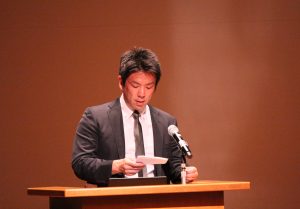
Prof. Seiji Kumagai (Associate Professor, KRC)
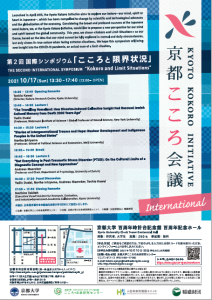
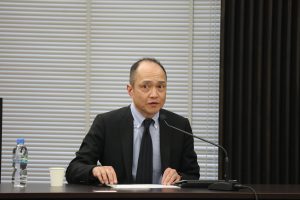
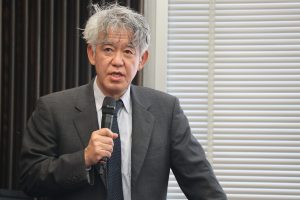
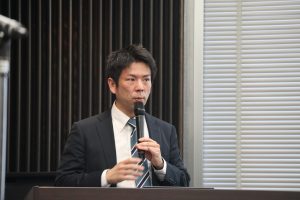
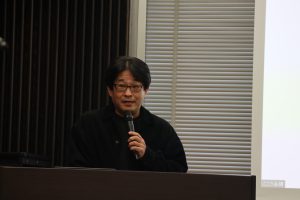
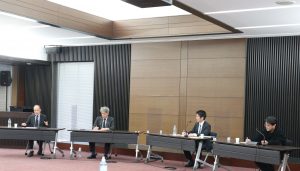
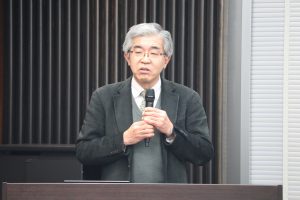
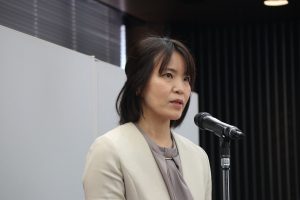
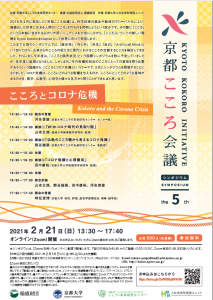
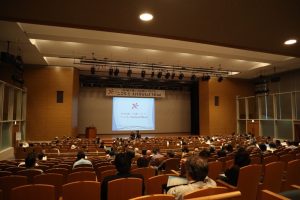
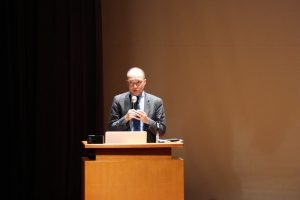
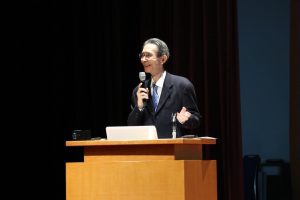
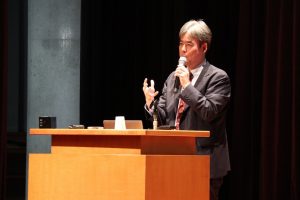
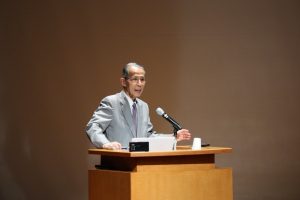
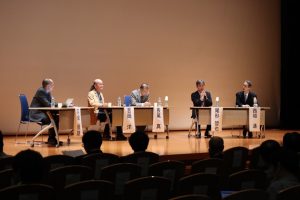
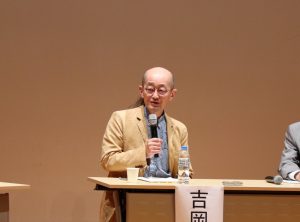
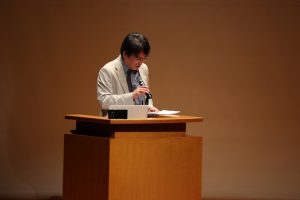
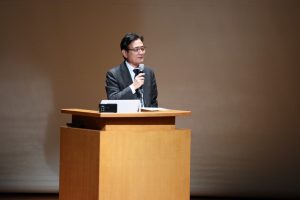
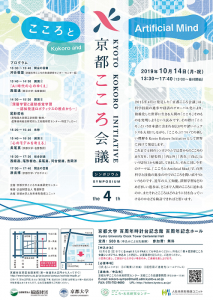
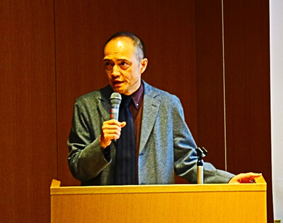
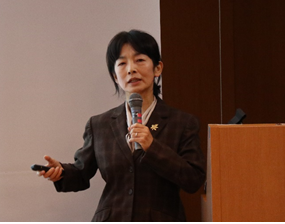
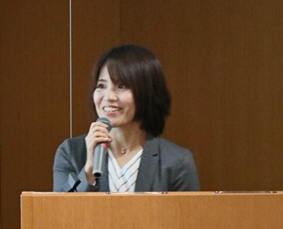
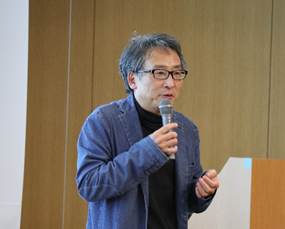
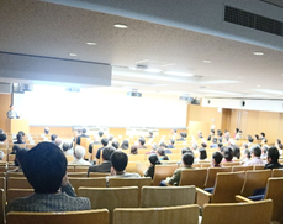
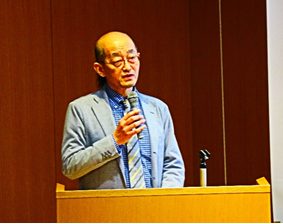
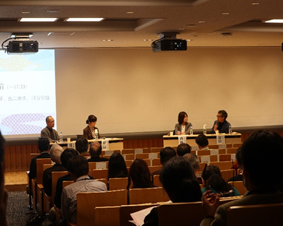
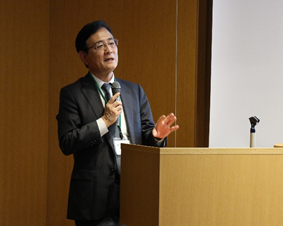
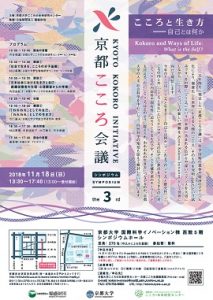
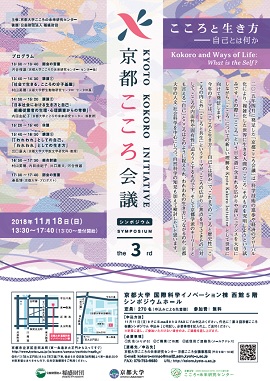
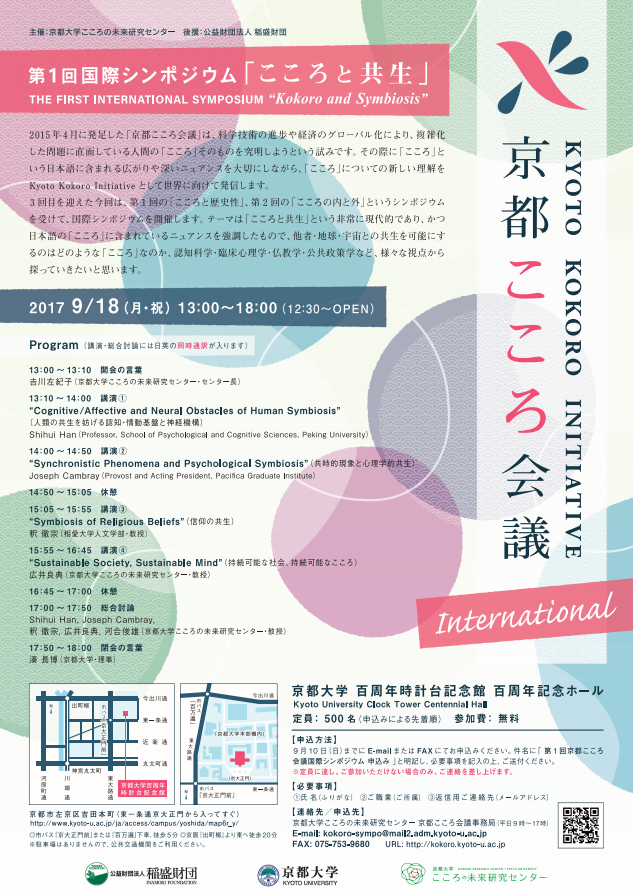
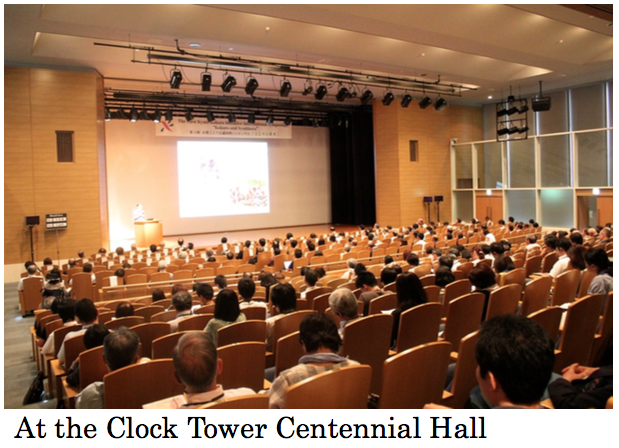
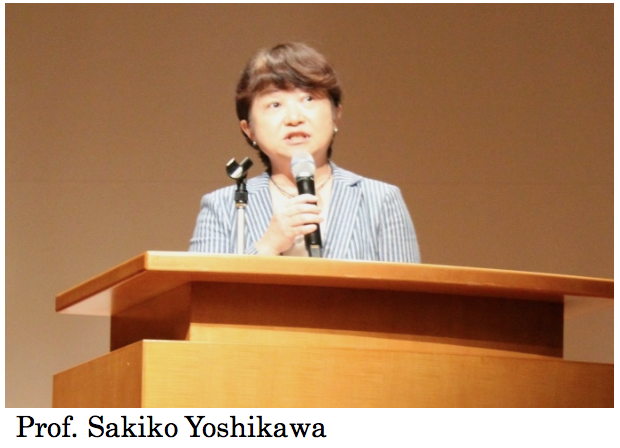
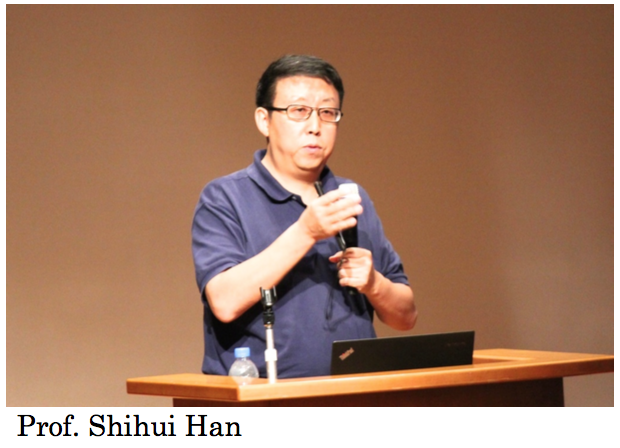
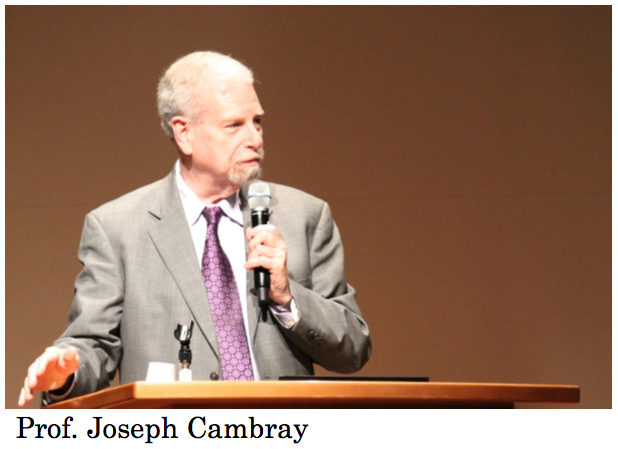
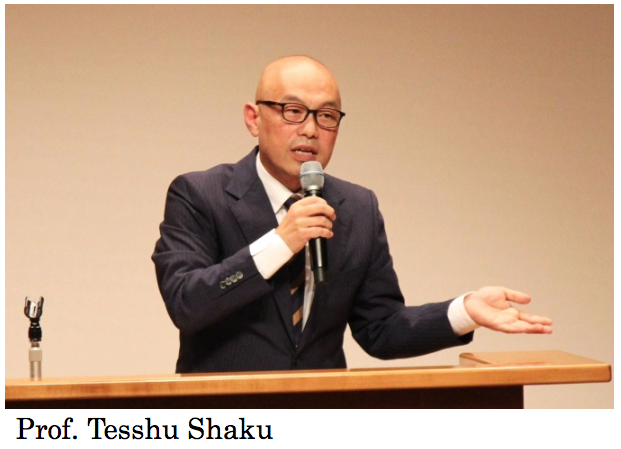
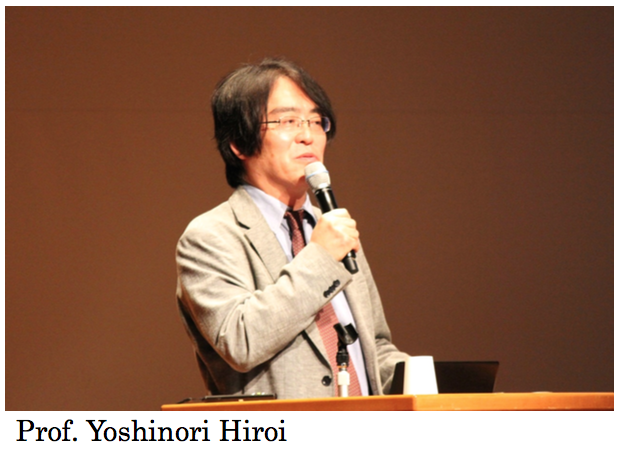
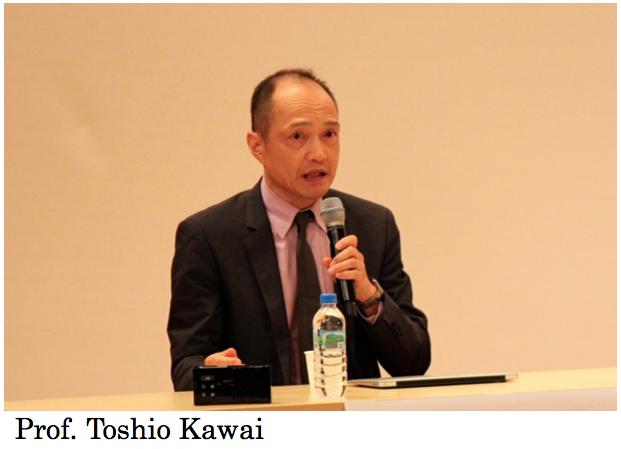
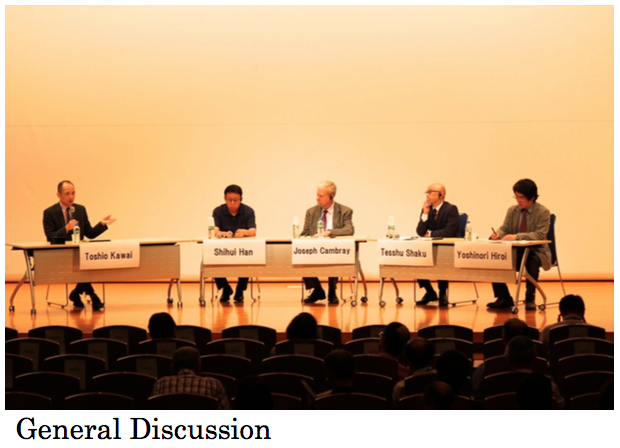
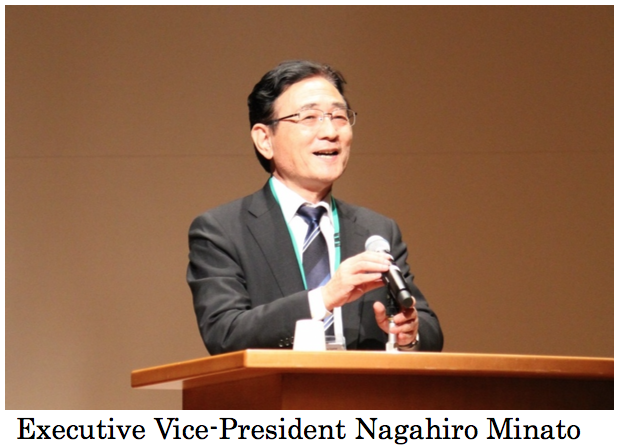
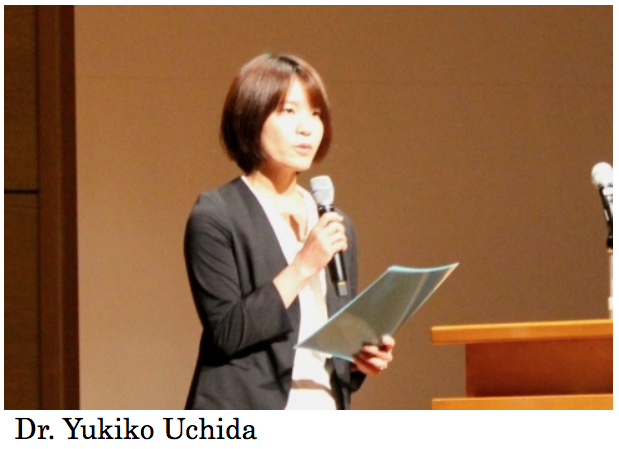
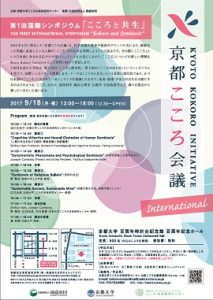 In April 2015, the “Kyoto Kokoro Initiative” launched a project to investigate the complex issues that advances in science, technology and the global economy pose for kokoro, the human mind and spirit. This project seeks to bring international awareness to the research we have done to gain new understandings of the multidimensional word kokoro. This marks the third year that a symposium on kokoro has been held. Continuing from the previous two national symposiums, the theme of this year’s international symposium is “Kokoro and Symbiosis”. The theme reflects the modern age we live in, emphasizing the nuanced word “kokoro”. What kind of “kokoro” enables a symbiotic relationship with other people, the Earth, and the universe? This theme will be explored from the various perspectives of cognitive science, clinical psychology, Buddhist studies and public policy studies.
In April 2015, the “Kyoto Kokoro Initiative” launched a project to investigate the complex issues that advances in science, technology and the global economy pose for kokoro, the human mind and spirit. This project seeks to bring international awareness to the research we have done to gain new understandings of the multidimensional word kokoro. This marks the third year that a symposium on kokoro has been held. Continuing from the previous two national symposiums, the theme of this year’s international symposium is “Kokoro and Symbiosis”. The theme reflects the modern age we live in, emphasizing the nuanced word “kokoro”. What kind of “kokoro” enables a symbiotic relationship with other people, the Earth, and the universe? This theme will be explored from the various perspectives of cognitive science, clinical psychology, Buddhist studies and public policy studies.